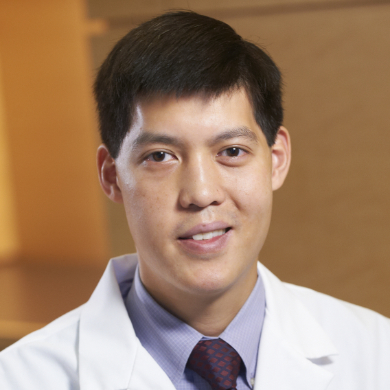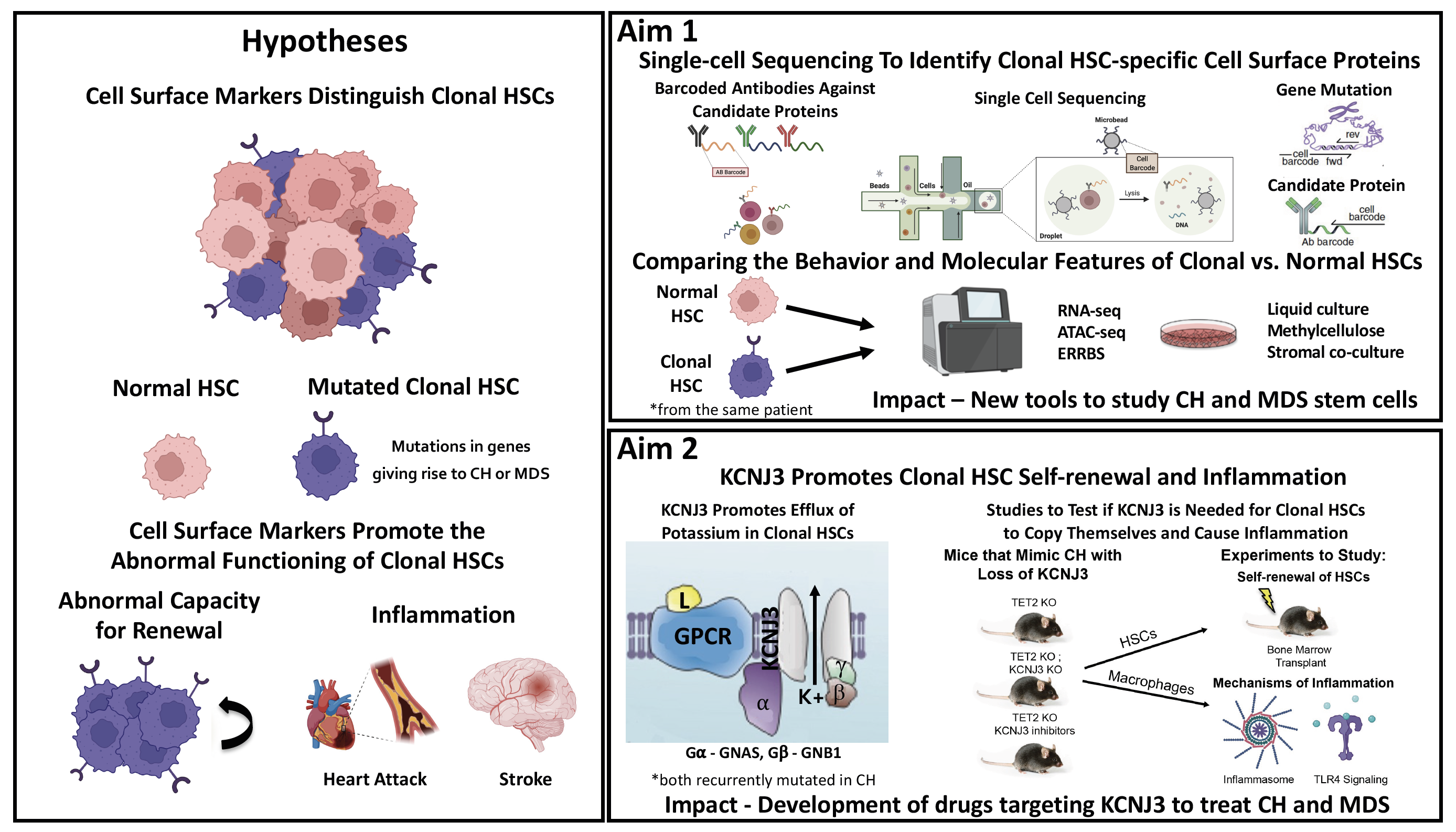
Researcher Profiles

Stephen S. Chung, M.D.
University of Texas Southwestern Medical Center
2022 Funding recipient
Leveraging Aberrantly Expressed Cell Surface Markers to Reveal Novel Mechanisms in Clonal Hematopoietic Stem Cells
Discovery Research Grant 2022
PROJECT SUMMARY
The myelodysplastic syndromes (MDS) occur when blood forming stem cells in the bone marrow acquire mutations that affect their ability to generate blood properly. These mutated stem cells have been shown to be highly resistant to treatments used in the clinic for MDS, and their persistence after treatment is likely responsible for relapse of MDS after initial responses to therapy. Gene mutations commonly seen in MDS and leukemia patients have also recently been found to be present in the blood forming stem cells of healthy older adults, a condition called clonal hematopoiesis (CH). Individuals with CH have a substantial increase in the risk for blood cancers such as MDS and leukemia, as well as an increase in the risk for heart attacks and strokes, which is likely due to increased inflammation provoked by mutated blood cells. It is thus important to understand how the gene mutations that arise in blood forming stem cells cause the low blood counts and inflammation that characterize MDS and CH.
However, understanding how mutated blood forming stem cells cause MDS and CH has been challenging because there are currently no known protein markers for distinguishing normal from abnormal blood forming stem cells in MDS and CH. Using new technologies that can measure both protein markers and gene mutation data in single stem cells, we have identified proteins that are present on the surface of MDS and CH stem cells but are not present on normal blood stem cells. This gives us the unprecedented ability to compare mutated MDS and CH stem cells with their normal counterparts, all within the same patient. We additionally plan to study how one of these proteins enables MDS and CH stem cells to outgrow their normal counterparts and cause disease by using mouse models missing this protein and by testing drugs that target it. Together, this research promises to yield new insights into the mechanisms by which mutated blood forming stem cells promote adverse clinical outcomes, while also identifying new tools for the diagnosis and treatment of patients with CH and MDS.

